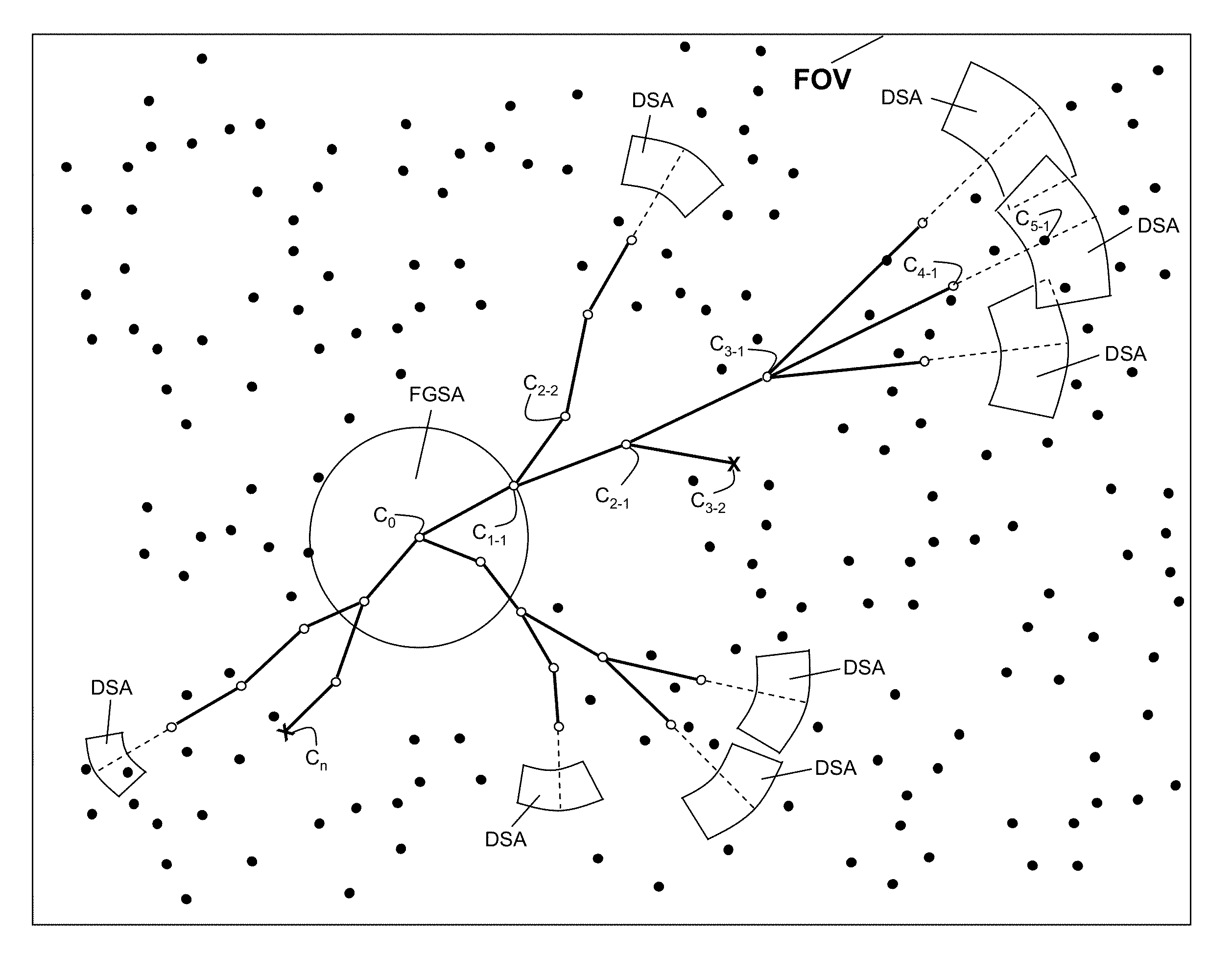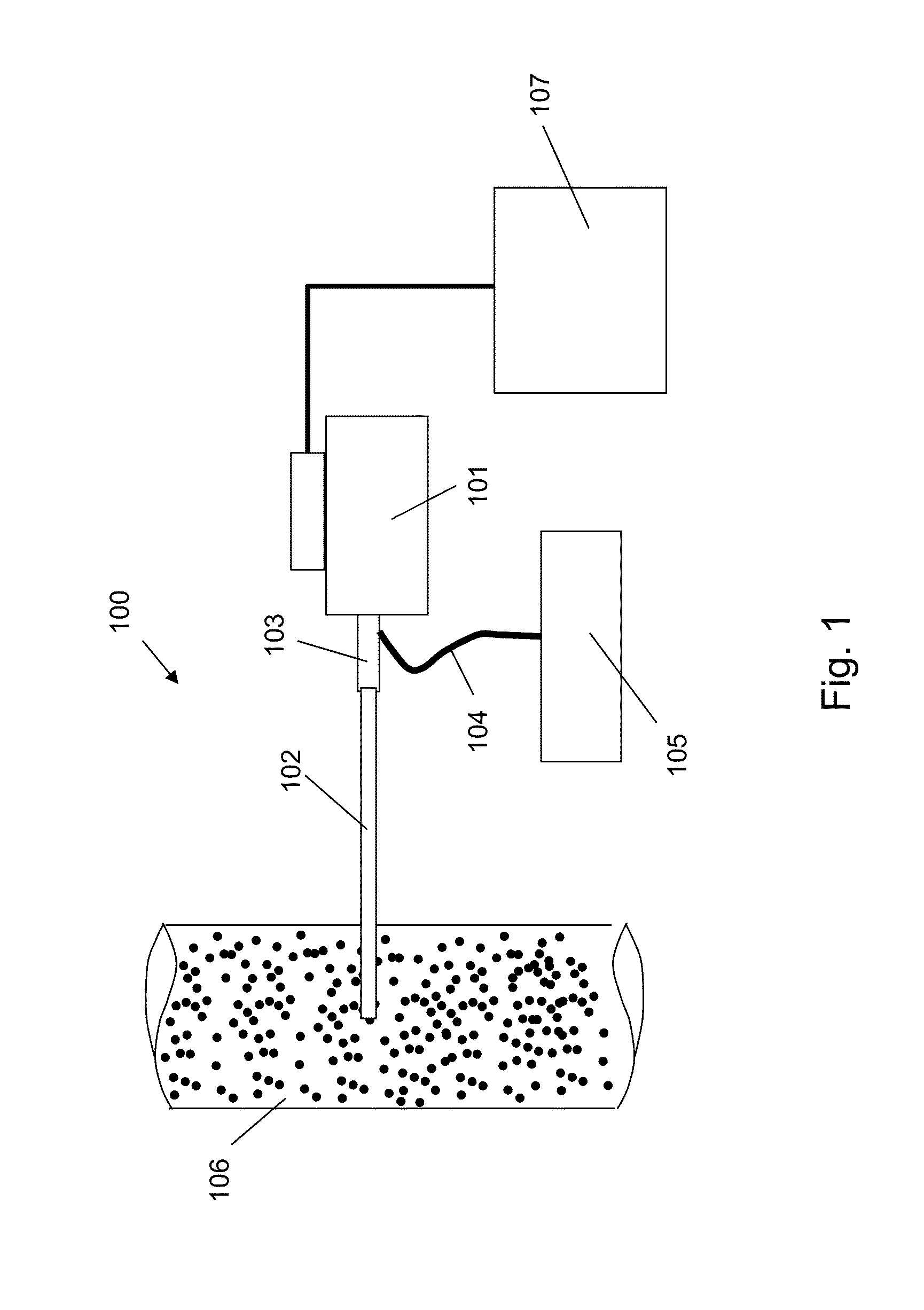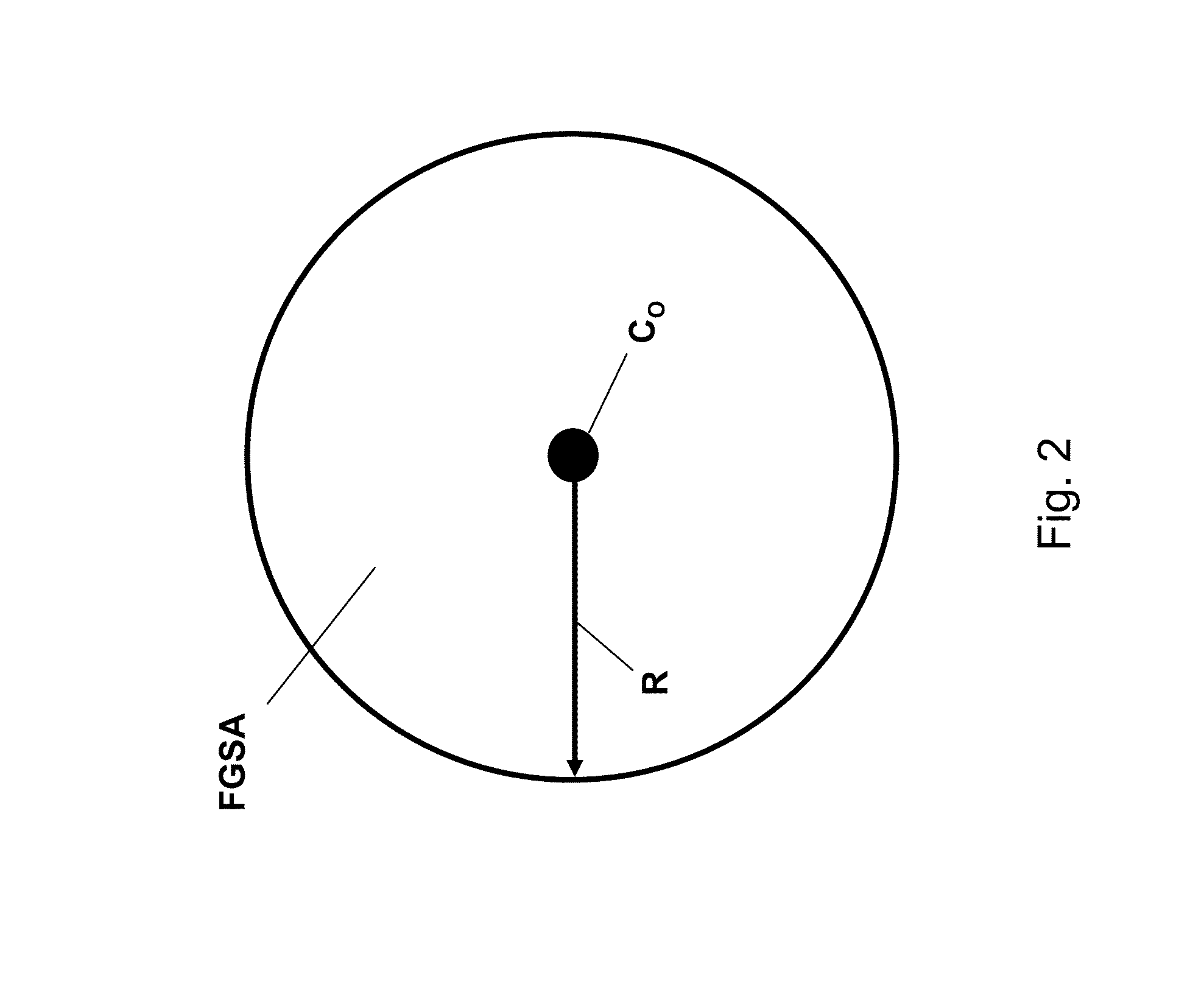Method of particle trajectory recognition in particle flows of high particle concentration using a candidate trajectory tree process with variable search areas
- Summary
- Abstract
- Description
- Claims
- Application Information
AI Technical Summary
Benefits of technology
Problems solved by technology
Method used
Image
Examples
Embodiment Construction
[0036]The following description is provided to enable any person skilled in the art to use the method disclosed herein and sets forth the best mode contemplated by the inventor for carrying out the method. Various modifications, however, will remain readily apparent to those skilled in the art, since the principles of the present method are disclosed herein specifically to provide a method of particle image trajectory recognition in series of camera frames of particle flows with high particle concentrations.
[0037]Within the method, particle trajectory recognition may be based on priori knowledge of particle flow behavior, but the initial size, location, and shape of search areas in successive frames are severely limited. The limitation is achieved by basing the size, location, and shape of search areas on particle flow properties, namely particle velocity and acceleration.
[0038]Within the method, trajectories are realized for centroids in a centroid population. In one embodiment, th...
PUM
 Login to View More
Login to View More Abstract
Description
Claims
Application Information
 Login to View More
Login to View More - R&D
- Intellectual Property
- Life Sciences
- Materials
- Tech Scout
- Unparalleled Data Quality
- Higher Quality Content
- 60% Fewer Hallucinations
Browse by: Latest US Patents, China's latest patents, Technical Efficacy Thesaurus, Application Domain, Technology Topic, Popular Technical Reports.
© 2025 PatSnap. All rights reserved.Legal|Privacy policy|Modern Slavery Act Transparency Statement|Sitemap|About US| Contact US: help@patsnap.com



